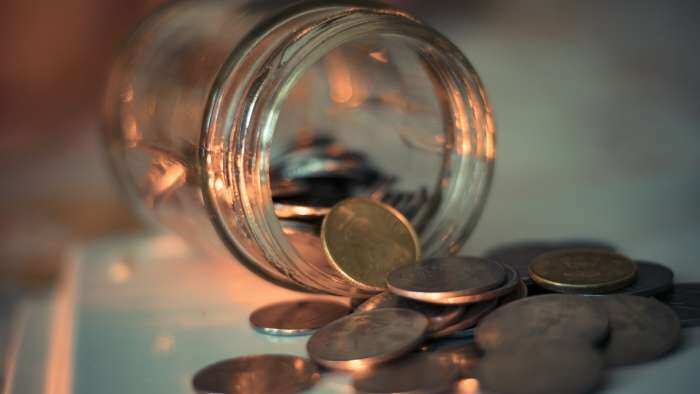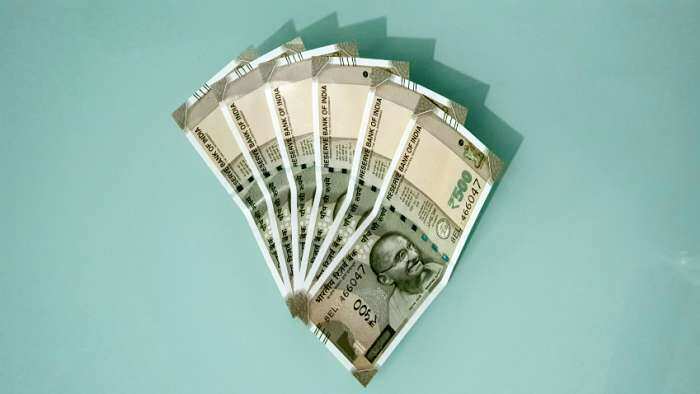Biden describes China as 'ticking time bomb' over economic problems: Report
“When bad folks have problems, they do bad things,” the president told a group of donors at a fund-raiser in Park City, Utah, on Thursday.
)
US President Joe Biden has cautioned that China's troubles with high unemployment and an ageing workforce make the country a "ticking time bomb" at the heart of the global economy and a potential threat to other countries, according to the New York Times.
“When bad folks have problems, they do bad things,” the president told a group of donors at a fund-raiser in Park City, Utah, on Thursday.
Once seemingly "inexhaustible" engine which propelled China is now sputtering, posing alarming risks for Chinese households and economies around the planet.
From a profit-enhancing version of globalisation, China has devolved into the ultimate wild card in a moment of extraordinary uncertainty for the world's economy, the New York Times reported.
The risks have been amplified in recent weeks by a slew of developments.
First came word that China's economy had slowed substantially in the spring, extinguishing hopes of a robust expansion after the lifting of extreme Covid restrictions.
This week brought data showing that China's exports have declined for three months in a row, while imports have dropped for five consecutive months, another indicator of flagging prospects, the New York Times reported.
Then came news that prices have fallen on a range of goods, from food to apartments, raising the spectre that China could be on the brink of deflation.
And in a sign of deepening distress in China's housing market, the intersection of finance, construction and household wealth, a major real estate developer missed payments on its bonds and estimated it lost up to USD 7.6 billion in the first half of the year.
For Chinese workers and households, these events added up to trouble. Around the globe, a weakening Chinese economy signalled a shrinking of demand for major goods. It spelt less appetite for oil, minerals and other building blocks of the industry, the New York Times reported.
Over the past decade, China has been the source of more than 40 per cent of global economic growth, compared with 22 per cent from the United States and 9 per cent from the 20 countries that use the euro currency, according to a recent analysis from BCA Research.
All of this is playing out as China's ruling Communist Party tries to transition from an economy powered by state-directed investments in infrastructure and exports to one led by domestic consumer spending.
The old model has run its course. It worked remarkably well for the two decades spanning the millennium when the government financed ports, electrical grids and other basic works for an export-led factory boom, the New York Times reported.
Deflation works its way into a society's basic expectations, destroying incentives to spend, expand businesses or hire workers, given the likelihood that everything will be cheaper later.
What is, for individuals, a rational thrift metastasises into decline for society.
Most economists think China will avoid that fate.
Falling prices may soon reverse.
And the government appears to have moderated its attacks on successful private businesses.
The continued shifting of factory work away from China, along with the focus on centring the economy on domestic consumption, is likely to push down wages and household wealth.
And even in a country controlled by a single unelected party, the loss of faith of large numbers of people may bring turbulence, the New York Times reported.
China's exports and imports collectively make up 40 per cent of its total economic output, noted Yasheng Huang, an economics professor at the Massachusetts Institute of Technology's Sloan School of Management, at a conference in May.
Many of China's imports are components for exported factory goods. So the more that China's exports drop, the more that imports do, too — a feedback loop of diminishing fortunes.
Get Latest Business News, Stock Market Updates and Videos; Check your tax outgo through Income Tax Calculator and save money through our Personal Finance coverage. Check Business Breaking News Live on Zee Business Twitter and Facebook. Subscribe on YouTube.
RECOMMENDED STORIES

Top 7 Mid Cap Mutual Funds With Highest SIP Returns in 10 Years: Rs 13,333 monthly SIP investment in No. 1 fund is now worth Rs 67,61,971

Rs 55 lakh Home Loan vs Rs 55 lakh SIP investment: Which can be faster route to arrange money for Rs 61 lakh home? Know here

Rs 4,000 Monthly SIP for 33 years vs Rs 40,000 Monthly SIP for 15 Years: Which can give you higher corpus in long term? See calculations

Sukanya Samriddhi Yojana vs PPF: Rs 1 lakh/year investment for 15 years; which can create larger corpus on maturity?

Latest FD Rates: Know what SBI, PNB, Canara Bank, HDFC Bank, ICICI Bank are providing on 1-year, 3-year and 5-year fixed deposits
03:37 PM IST










 President Joe Biden set to host PM Modi in hometown Wilmington as Quad leaders intensify partnership
President Joe Biden set to host PM Modi in hometown Wilmington as Quad leaders intensify partnership Joe Biden spoke to former president Donald Trump; returns to White House
Joe Biden spoke to former president Donald Trump; returns to White House US President Joe Biden makes law to support rights of Tibetans
US President Joe Biden makes law to support rights of Tibetans Record usage of X during US presidential debate: Elon Musk
Record usage of X during US presidential debate: Elon Musk President Biden plans to restrict US investment in Chinese cutting-edge technology critical for modernising military
President Biden plans to restrict US investment in Chinese cutting-edge technology critical for modernising military